Results
-
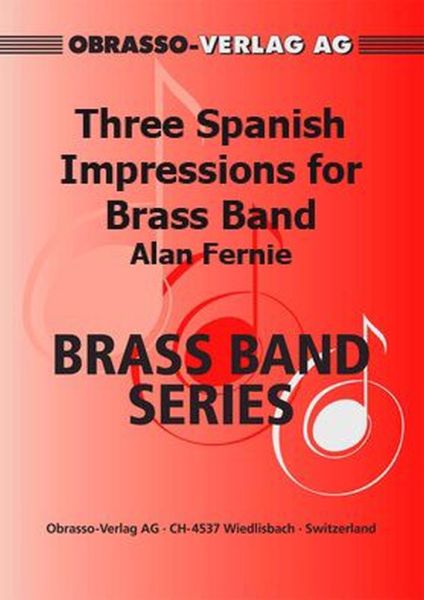 £64.00
£64.00Three Spanish Impressions (Score and Parts)
Three Spanish Impressions originally were part of a large, single movement work called " SPAIN" Whilst happy with the content of the work, I realised that it was rather unwieldy and a bit too long, so, with the publishers blessing, created a shorter suite from the existing material.The brooding and repetitive opening movement takes its mood perhaps from the Miles Davis/Gil Evans album "Sketches of Spain", albeit in a less stringent harmonic language. The middle movement is a delicate and fragile waltz, with shades of a romance within, and the finale, a colourful and robust fandango, also contains a lyrical heart!The thematic material, whilst written very much as a pastiche of the music of Spain, is original, and the accent is firmly on melody and musicianship!Alan FernieJune 2007
Estimated dispatch 7-14 working days
-
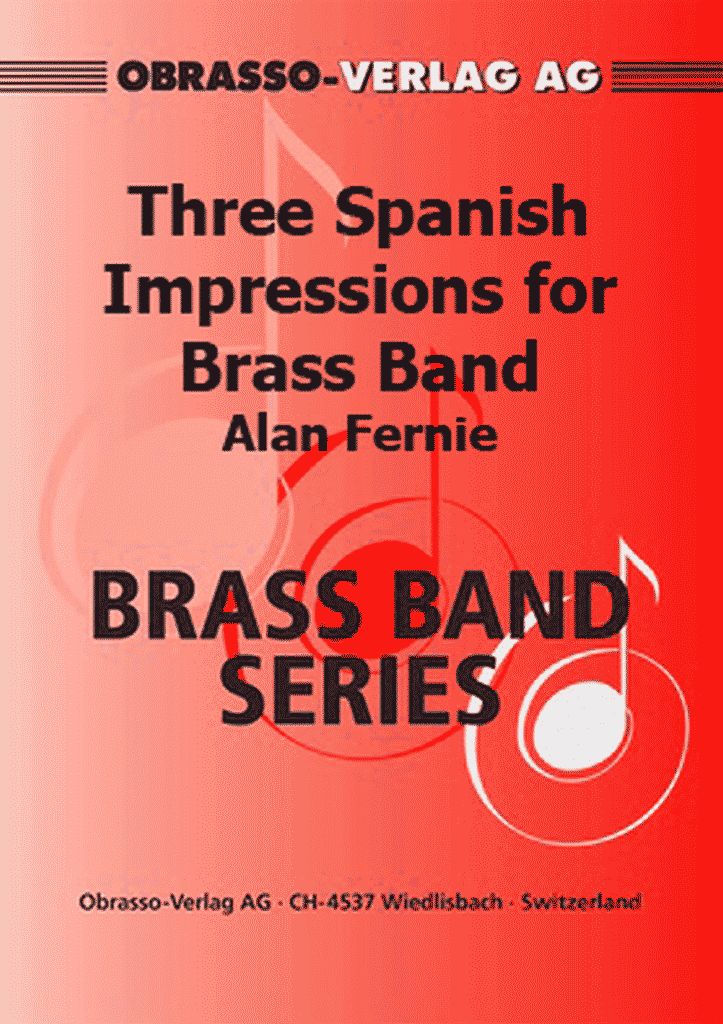 £24.00
£24.00Three Spanish Impressions (Score Only)
Three Spanish Impressions originally were part of a large, single movement work called " SPAIN" Whilst happy with the content of the work, I realised that it was rather unwieldy and a bit too long, so, with the publishers blessing, created a shorter suite from the existing material.The brooding and repetitive opening movement takes its mood perhaps from the Miles Davis/Gil Evans album "Sketches of Spain", albeit in a less stringent harmonic language. The middle movement is a delicate and fragile waltz, with shades of a romance within, and the finale, a colourful and robust fandango, also contains a lyrical heart!The thematic material, whilst written very much as a pastiche of the music of Spain, is original, and the accent is firmly on melody and musicianship!Alan FernieJune 2007
Estimated dispatch 7-14 working days
-
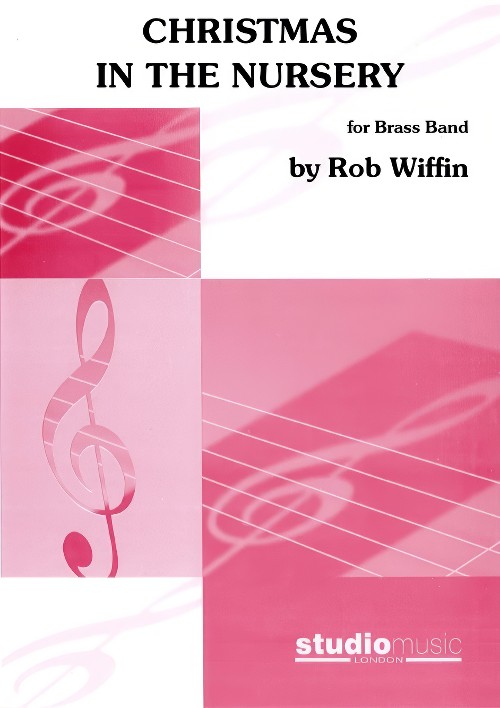 £42.95
£42.95Christmas in the Nursery (Brass Band - Score and Parts) - Wiffin, Rob
This arrangement of Christmas Carols was made in the same format and style as the highly successful Dancing 'round the Nursery.It includes:Here We Come A-WassailingIn Dulci JubiloI Saw Three Ships Come Sailing InWe Three KingsSussex CarolDing Dong Merrily on HighDeck the HallsGood King WenceslasThe Twelve Days of ChristmasJingle BellsWe Wish You a Merry ChristmasDuration: 4.30
Estimated dispatch 7-14 working days
Audio Player -
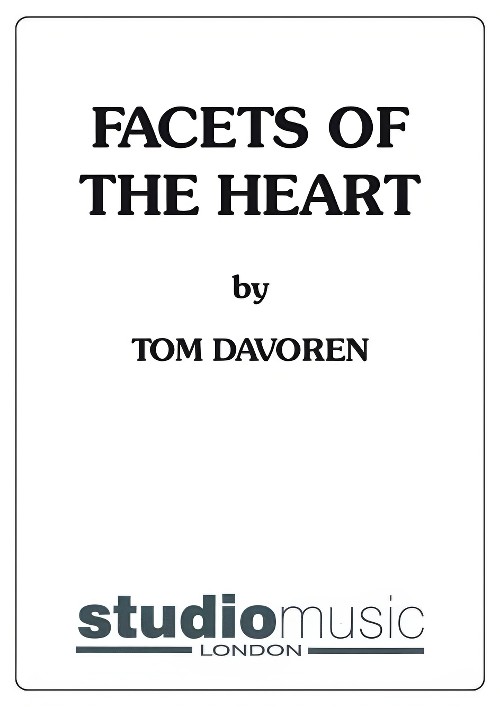 £94.95
£94.95Facets of the Heart (Brass Band - Score and Parts) - Davoren, Tom
2015 Butlins Championship Section Testpiece.Facets of the Heart was created during a turbulent period of the composers life. The concept behind it changed between inception and completion. The result is a musical representation of three lesser considered but extremely important aspects of love, set against their natural opposites. Running in three continuous sections, the chosen aspects are Fear, Pain and Comfort, and Doubt and Courage.Duration: 14 mins.
Estimated dispatch 7-14 working days
-
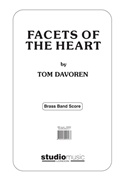 £49.95
£49.95Facets of the Heart (Brass Band - Score only) - Davoren, Tom
2015 Butlins Championship Section Testpiece.Facets of the Heart was created during a turbulent period of the composers life. The concept behind it changed between inception and completion. The result is a musical representation of three lesser considered but extremely important aspects of love, set against their natural opposites. Running in three continuous sections, the chosen aspects are Fear, Pain and Comfort, and Doubt and Courage.Duration: 14 mins.
Estimated dispatch 7-14 working days
-
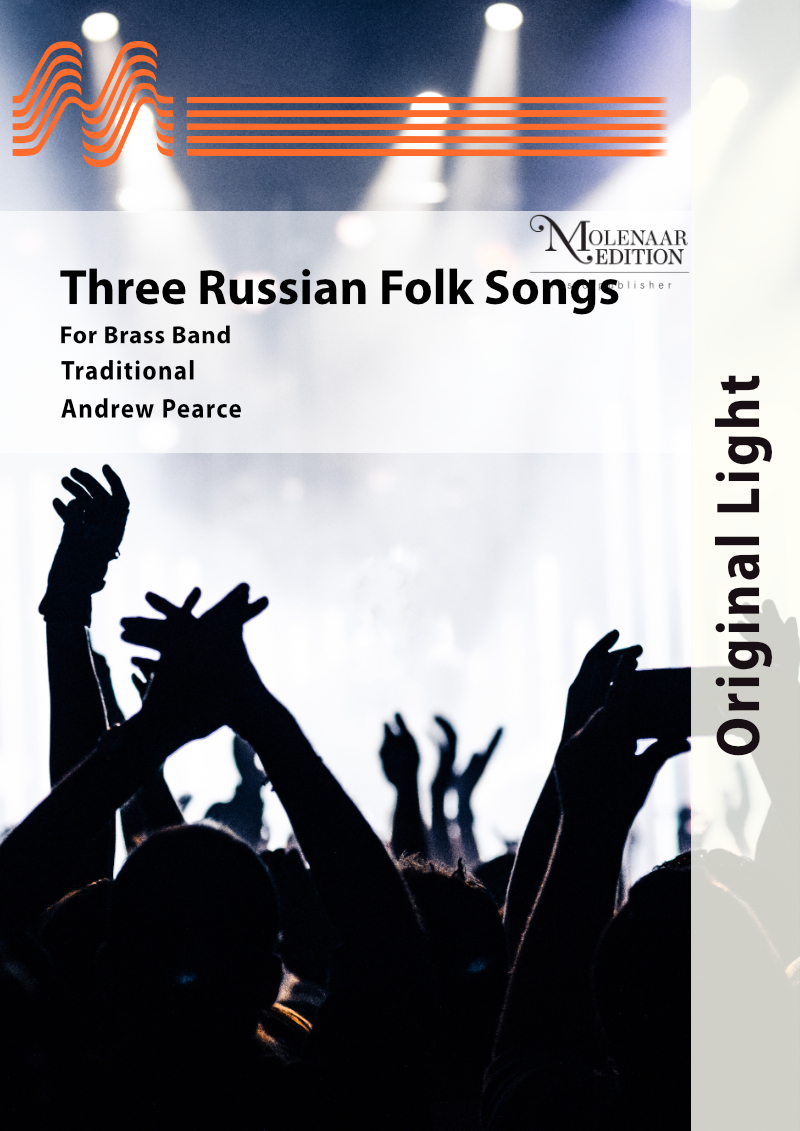 £57.00
£57.00Three Russian Folk Songs - Traditional/Andrew Pearce
Three popular Russian folk songs, including: 1. 'Kalinka', a Russian song written in 1860 by the composer and folklorist Ivan Larionov, first performed in Saratov as part of a theatrical entertainment that he'd composed. It has a bright, speedy tempo, featuring soloists from each section. 2. 'Krasny Sarafan' (The Wedding dress or Red Summer Dress) is a beautiful, slow and lyrical song. 3. 'My Little Gypsies' ends the suite at a brisk pace with vigour and vitality, featuring every section of the ensemble!
Estimated dispatch 10-14 working days
-
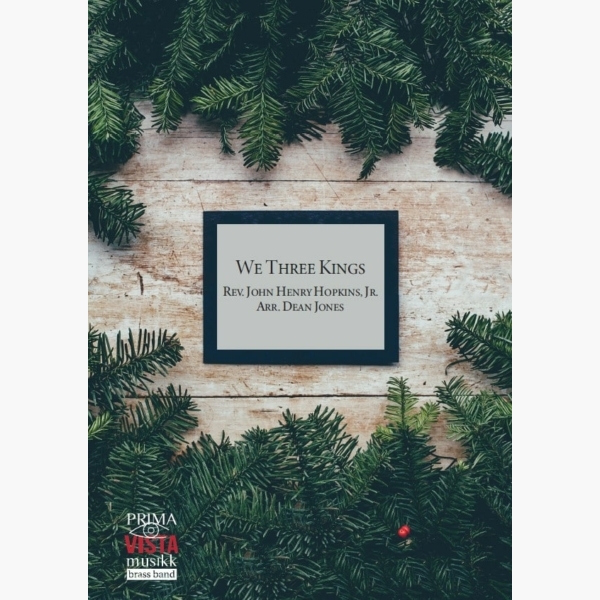 £24.95
£24.95We Three Kings - Rev. John Henry Hopkins Jr - Dean Jones
'We Three Kings of Orient Are' is a Christmas carol (technically an Epiphany carol) written by Rev. John Henry Hopkins, Jr. who wrote both the lyrics and the music as part of a Christmas pageant for the General Theological Seminary...
Estimated dispatch 5-7 working days
-
£29.95
TO WIN THE WORLD (Cornet and Trombone Double Trio with Brass Band Set) - Stephen Bulla
This double trio (three cornets and three trombones) was written for the National Capital Band of The Salvation Army in memory of Colonel William Maltby and is based on his own chorus, 'Keep on marching with a fighting faith'. Each solo part is of equal importance so six competent soloists will be required in order to make the piece sparkle!
Estimated dispatch 7-14 working days
-
 £54.99
£54.99Three Classics for Youth
In a suite of three parts arranger Dagmar Kildevann makes a bridge between starting musician and classic composer. You hear the following parts: Grand march from Aida - Verdi. Aria, from The Marriage of Figaro - Mozart. Can-Can, from Orpheus in the Underworld - Offenbach.
Estimated dispatch 5-14 working days
-
£29.95
To Win The World (Cornet And Trombone Double Trio with Brass Band - Score and Parts) - Bulla, Stephen
This double trio (three cornets and three trombones) was written for the National Capital Band of The Salvation Army in memory of Colonel William Maltby and is based on his own chorus, 'Keep on marching with a fighting faith'. Each solo part is of equal importance so six competent soloists will be required in order to make the piece sparkle!
Estimated dispatch 7-14 working days
